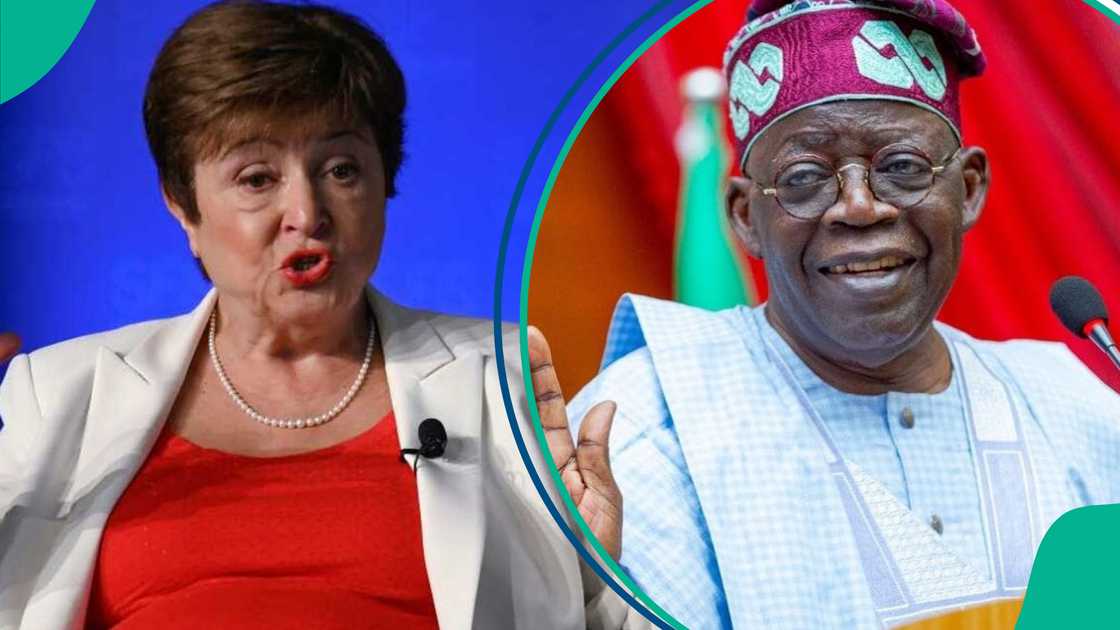IMF Advises Nigeria to Adjust 2025 Budget Amid Lower Oil Prices
Legit.ng journalist Zainab Iwayemi has 5-year-experience covering the Economy, Technology, and Capital Market.
Given the lower-than-expected oil prices on the global market, the Federal Government (FG) has been encouraged by the International Monetary Fund (IMF) to reconsider the 2025 N54.99 trillion budget.

Source: Getty Images
The Fund's Article IV Consultation Report on Nigeria, which was published on Tuesday in Washington, DC, USA, included the advice.
According to the global institution, Nigeria’s economy is expected to grow at 3.4%, supported by higher oil output and a falling inflation rate. However, the 2025 budget needs to be recalibrated to reflect lower oil prices and market realities. The IMF commended the Central Bank of Nigeria (CBN) for its exchange rate liberalization and other reforms by the monetary authorities, which have increased capital flow into the country.
The Fund stated that until disinflation is firmly established, the Central Bank of Nigeria should continue to maintain a strict monetary policy stance.
The ongoing recapitalisation process is one of the initiatives aimed at improving the banking system, which the IMF has acknowledged.
It stated that "growth has been steady, but too low in per capita terms, and inflation remains high. These gains have yet to benefit all Nigerians. Food insecurity and poverty have risen.
Halfway through its term, the government is now focused on raising growth, while adapting to the spillovers from the changing global environment. Agriculture remained subdued, owing to security challenges and sliding productivity.”
"Real GDP is expected to expand by 3.4% in 2025, supported by the new domestic refinery, higher oil production, and robust services. Against a complex and uncertain external environment, medium-term growth is projected to hover around 3.5%, supported by domestic reform gains."
On the external sector and the foreign exchange market, the Fund stated: "Reforms to the FX market and foreign exchange interventions have brought stability to the naira. Naira stabilization and improvements in food production helped bring inflation down to 23.7% year-on-year in April 2025, compared to the 31 percent annual average in 2024, according to the rebased CPI index released by the Nigerian Bureau of Statistics."
The Minister of Finance and Coordinating Minister of the Economy, Mr. Wale Edun, reacted to the IMF findings on Nigeria, following the conclusion of the Article IV Consultation in April 2025. He said the government would take a proactive stance against the identified downside risks.
In a statement, Mohammed Manga, the Director of Information and Public Relations, said that the Minister stressed the importance of implementing the 2025 budget with an emphasis on maintaining economic stability and protecting reform achievements.

Source: UGC
He stated,
“The government continues to monitor developments in the international oil market and the global trade environment and is taking responsive measures to mitigate potential risks while maintaining momentum toward inclusive growth.”
Legit.ng reported that as the second half of 2025 progresses, more and more African countries are facing problems due to their high debt obligations to the International Monetary Fund (IMF).
Even though IMF-supported initiatives are intended to stabilize the economy over time, they have occasionally resulted in painful austerity measures that incite popular unrest in nations like Ghana and Malawi.
These monetary commitments, which were frequently made to close budget gaps, increase foreign reserves, or keep economies stable during severe crises, have now developed into serious dangers.
PAY ATTENTION: Сheck out news that is picked exactly for YOU ➡️ find the “Recommended for you” block on the home page and enjoy!
Source: Legit.ng









